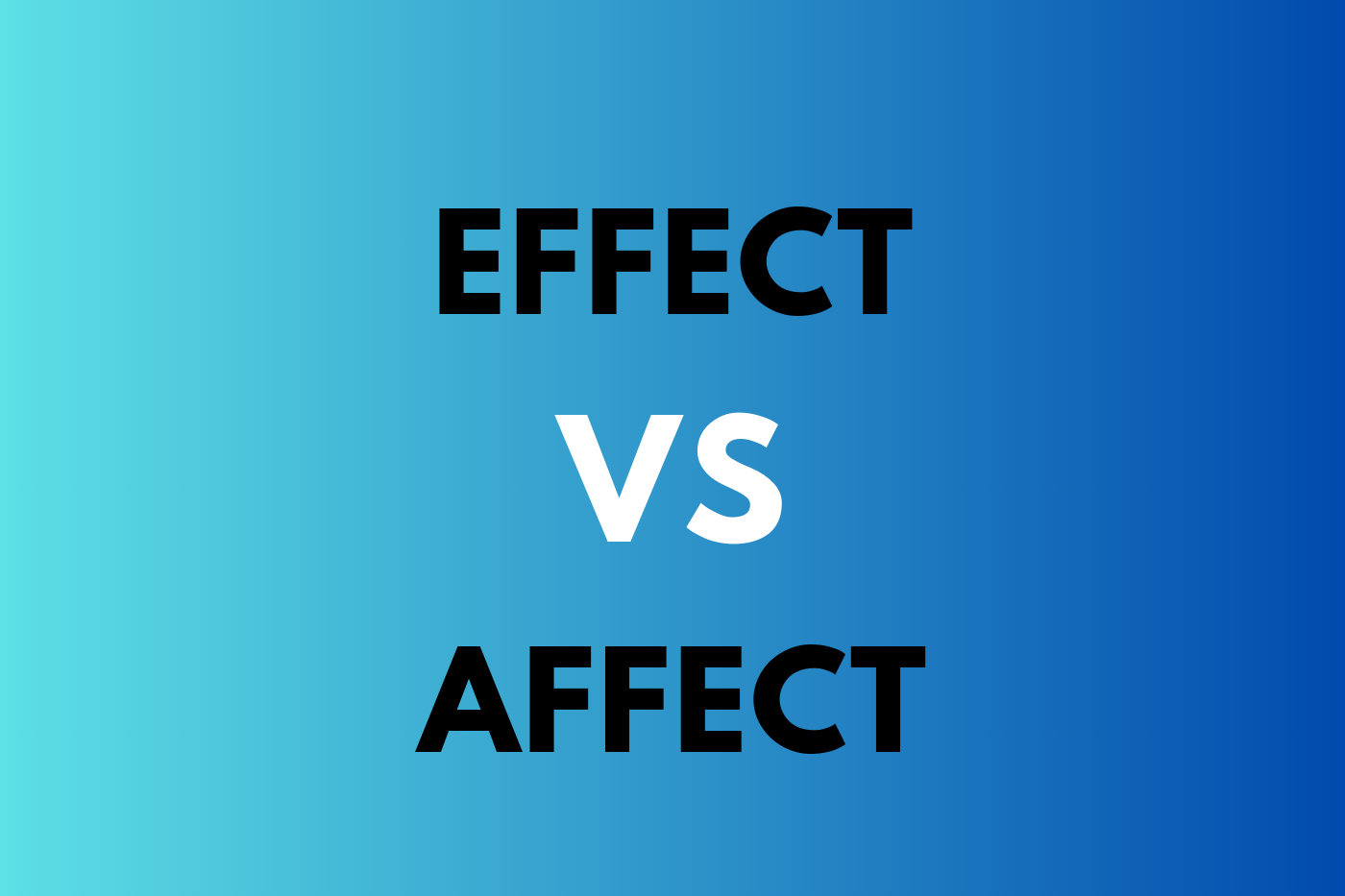Due to similar meanings and spellings, the words “effect” (also known as “affect”) and “effect” (also known as “affect”) are frequently confused in English. They serve distinct roles and express different ideas. It is important to understand effect vs affect their proper usage for clear communication.
Understanding “Effect”
It is common to use the word “effect” as a verb when referring to an outcome or result of an act. The word “effect” refers to an impact or consequence of a cause. The new policy, for example, had a positive impact on employee morale.
Other common phrases that use “effect” are “in effect”, “take effect” and “special effects”.
Understanding “Affect”
The verb “affect”, on the other hand is used to describe the action of changing something or influencing it. This refers to the act of producing an effect. As an example, “The noise interfered with my concentration.”
The word “affect”, which is used in many phrases, includes “emotionally affected,” weather affecting travel plans, and “affect changes” (meaning to make a change).
What to remember about the difference
You can easily distinguish between effect vs affect, and “action” by using a simple trick. “Affect” refers to a verb, while “effect” represents a noun. This distinction will help you select the right word for your writing.
Use Correct Sentences
It is important to use these words in the right sentences for effective communication. As an example:
- The pandemic affected global economies in a major way.
- Her positive attitude is contagious.
The Impact of Misuse
The misuse of effect vs affect, can cause confusion, and reduce the clarity and precision in your writing. The wrong word can change the meaning of the sentence and cause misunderstandings.
Common Pitfalls and Mistakes
A common error is to use “effect” in the standard English as a verb. This is not correct. The same is true for using “effect” as a verb.
Contextual considerations
The role that each word has in the sentence will determine which one to use. To use them correctly, you need to understand the context.
The Language Evolution
The use of words such as effect vs affect, can be affected by cultural changes and communication trends.
Grammar and vocabulary tips
Practice using the words effect vs affect, in different sentences, to improve your language. Furthermore, reading and studying grammar can help you develop your proficiency.
Practice Exercises
- Use effect vs affect, respectively, to rewrite the sentences.
- Use each word in a sentence.
The importance of precision in writing
Accurate use of words is essential for clear communication. The use of precise language can help readers understand your ideas.
The Key Take-Aways
It is important to understand the differences between effect vs affect, as this will help you communicate and write effectively. It is important to remember that an “effect” usually refers to a specific result. “Affect” can be a verb or noun.
Conclusion
By mastering the difference between effect vs affect, you can improve your writing and make sure that your message comes across clearly. Improve your English by using these words.
FAQs
What’s the biggest mistake that people make when they use effect vs affect”
It is a common error to use “effect” in the wrong way. Keep in mind that “effect” refers to a noun and “affect”, a verb.
Can you ever use “effect” as a verb in English?
The standard English language does not allow the use of “effect”.
What is the difference between effect vs affect?
The verb/noun technique is useful: “affect”, for example, is an action verb. “Effect”, on the other hand, is a result noun.
What are the regional variations in these words’ usage?
In general, English-speaking areas use the same distinction between “effect” and “affect”.
What is the difference between effect vs affect?
The confusion is caused by their similar meanings and spellings. Their roles within sentences will help you remember their correct usage.









